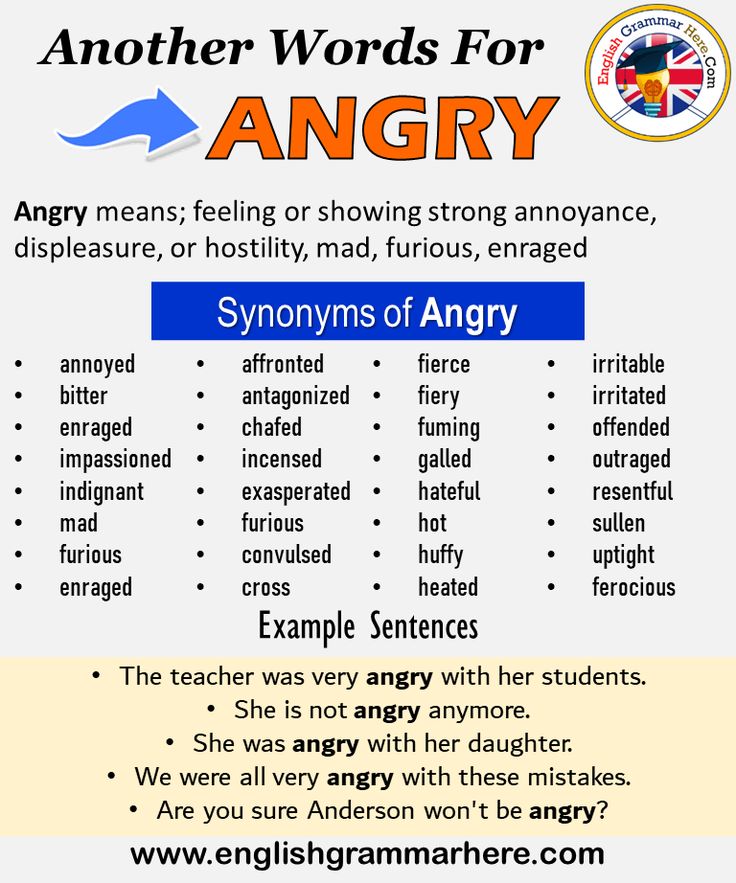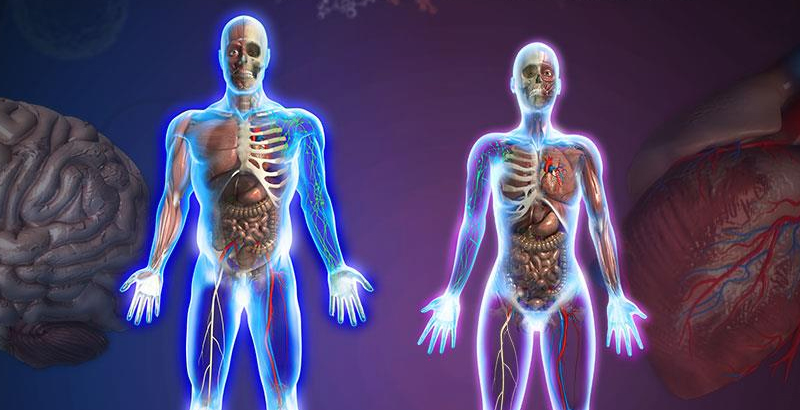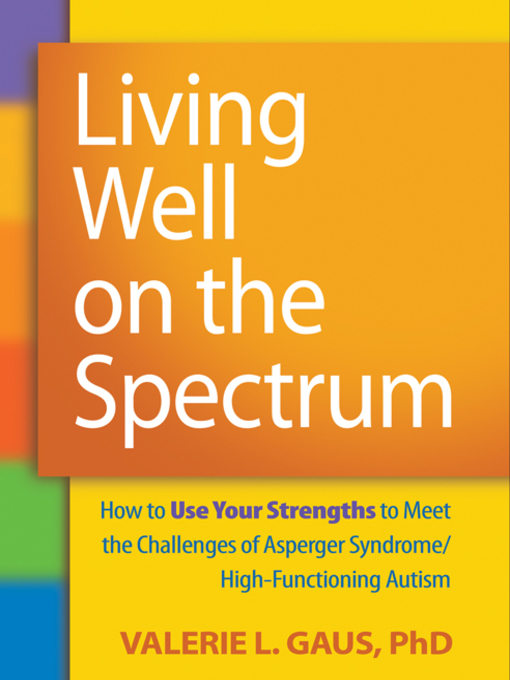Managing your anger
25 Tips to Manage Your Anger and Feel Calmer
Anger is a normal feeling and can be a positive emotion when it helps you work through issues or problems, whether that’s at work or at home.
However, anger can become problematic if it leads to aggression, outbursts, or even physical altercations.
Anger control is important for helping you avoid saying or doing something you may regret. Before anger escalates, you can use specific strategies for controlling anger.
Here are 25 ways you can control your anger:
1. Count down
Count down (or up) to 10. If you’re really mad, start at 100. In the time it takes you to count, your heart rate will slow, and your anger will likely subside.
2. Take a breather
Your breathing becomes shallower and speeds up as you grow angry. Reverse that trend (and your anger) by taking slow, deep breaths from your nose and exhaling out of your mouth for several moments.
3. Go walk around
Exercise can help calm your nerves and reduce anger. Go for a walk, ride your bike, or hit a few golf balls. Anything that gets your limbs pumping is good for your mind and body.
4. Relax your muscles
Progressive muscle relaxation calls on you to tense and slowly relax various muscle groups in your body, one at a time. As you tense and release, take slow, deliberate breaths.
5. Repeat a mantra
Find a word or phrase that helps you calm down and refocus. Repeat that word again and again to yourself when you’re upset. “Relax,” “Take it easy, and “You’ll be OK” are all good examples.
6. Stretch
Neck rolls and shoulder rolls are good examples of nonstrenuous yoga-like movements that can help you control your body and harness your emotions. No fancy equipment required.
7. Mentally escape
Slip into a quiet room, close your eyes, and practice visualizing yourself in a relaxing scene. Focus on details in the imaginary scene: What color is the water? How tall are the mountains? What do the chirping birds sound like? This practice can help you find calm amidst anger.
8. Play some tunes
Let music carry you away from your feelings. Put in earbuds or slip out to your car. Crank up your favorite music and hum, bop, or sashay your anger away.
9. Stop talking
When you’re steamed, you may be tempted to let the angry words fly, but you’re more likely to do harm than good. Pretend your lips are glued shut, just like you did as a kid. This moment without speaking will give you time to collect your thoughts.
10. Take a timeout
Give yourself a break. Sit away from others. In this quiet time, you can process events and return your emotions to neutral. You may even find this time away from others is so helpful you want to schedule it into your daily routine.
11. Take action
Harness your angry energy. Sign a petition. Write a note to an official. Do something good for someone else. Pour your energy and emotions into something that’s healthy and productive.
12. Write in your journal
What you can’t say, perhaps you can write. Jot down what you’re feeling and how you want to respond. Processing it through the written word can help you calm down and reassess the events leading up to your feelings.
Jot down what you’re feeling and how you want to respond. Processing it through the written word can help you calm down and reassess the events leading up to your feelings.
13. Find the most immediate solution
You might be angry that your child has once again left their room a mess before going to visit a friend. Shut the door. You can temporarily end your anger by putting it out of your view. Look for similar resolutions in any situations.
14. Rehearse your response
Prevent an outburst by rehearsing what you’re going to say or how you’re going to approach the problem in the future. This rehearsal period gives you time to role-play several possible solutions, too.
15. Picture a stop sign
The universal symbol to stop can help you calm down when you’re angry. It’s a quick way to help you visualize the need to halt yourself, your actions, and walk away from the moment.
16. Change your routine
If your slow commute to work makes you angry before you’ve even had coffee, find a new route. Consider options that may take longer but leave you less upset in the end.
Consider options that may take longer but leave you less upset in the end.
17. Talk to a friend
Don’t stew in the events that made you angry. Help yourself process what happened by talking with a trusted, supportive friend who can possibly provide a new perspective.
18. Laugh
Nothing upends a bad mood like a good one. Diffuse your anger by looking for ways to laugh, whether that’s playing with your kids, watching stand-up, or scrolling memes.
19. Practice gratitude
Take a moment to focus on what’s right when everything feels wrong. Realizing how many good things you have in your life can help you neutralize anger and turn around the situation.
20. Set a timer
The first thing that comes to mind when you’re angry likely isn’t the thing you should say. Give yourself a set time before you respond. This time will help you be calmer and more concise.
21. Write a letter
Write a letter or email to the person that made you angry. Then, delete it. Often, expressing your emotions in some form is all you want, even if it’s in something that will never be seen.
Then, delete it. Often, expressing your emotions in some form is all you want, even if it’s in something that will never be seen.
22. Imagine forgiving them
Finding the courage to forgive someone who has wronged you takes a lot of emotional skill. If you can’t go that far, you can at least pretend that you’re forgiving them, and you’ll feel your anger slip away.
23. Practice empathy
Try to walk in the other person’s shoes and see the situation from their perspective. When you tell the story or relive the events as they saw it, you may gain a new understanding and become less angry.
24. Express your anger
It’s OK to say how you feel, as long as you handle it in the right way. Ask a trusted friend to help you be accountable to a calm response. Outbursts solve no problems, but mature dialogue can help reduce your stress and ease your anger. It may also prevent future problems.
25. Find a creative channel
Turn your anger into a tangible production. Consider painting, gardening, or writing poetry when you’re upset. Emotions are powerful muses for creative individuals. Use yours to reduce anger.
Consider painting, gardening, or writing poetry when you’re upset. Emotions are powerful muses for creative individuals. Use yours to reduce anger.
The bottom line
Anger is a normal emotion that everyone experiences from time to time. However, if you find your anger turns to aggression or outbursts, you need to find healthy ways to deal with anger.
If these tips don’t help, consider talking with your doctor. A mental health specialist or therapist can help you work through underlying factors that may contribute to anger and other emotional issues.
Anger Management - HelpGuide.org
communication
Is your temper hijacking your life? These tips and techniques can help you get anger under control and express your feelings in healthier ways.
Understanding anger
Anger is a normal, healthy emotion, neither good nor bad. Like any emotion, it conveys a message, telling you that a situation is upsetting, unjust, or threatening. If your knee-jerk reaction to anger is to explode, however, that message never has a chance to be conveyed. So, while it’s perfectly normal to feel angry when you’ve been mistreated or wronged, anger becomes a problem when you express it in a way that harms yourself or others.
So, while it’s perfectly normal to feel angry when you’ve been mistreated or wronged, anger becomes a problem when you express it in a way that harms yourself or others.
You might think that venting your anger is healthy, that the people around you are too sensitive, that your anger is justified, or that you need to show your fury to get respect. But the truth is that anger is much more likely to have a negative impact on the way people see you, impair your judgment, and get in the way of success.
Effects of anger
Chronic anger that flares up all the time or spirals out of control can have serious consequences for your:
- Physical health. Constantly operating at high levels of stress and anger makes you more susceptible to heart disease, diabetes, a weakened immune system, insomnia, and high blood pressure.
- Mental health. Chronic anger consumes huge amounts of mental energy, and clouds your thinking, making it harder to concentrate or enjoy life.
 It can also lead to stress, depression, and other mental health problems.
It can also lead to stress, depression, and other mental health problems. - Career. Constructive criticism, creative differences, and heated debate can be healthy. But lashing out only alienates your colleagues, supervisors, or clients and erodes their respect.
- Relationships. Anger can cause lasting scars in the people you love most and get in the way of friendships and work relationships. Explosive anger makes it hard for others to trust you, speak honestly, or feel comfortable—and is especially damaging to children.
If you have a hot temper, you may feel like it’s out of your hands and there’s little you can do to tame the beast. But you have more control over your anger than you think. With insight about the real reasons for your anger and these anger management tools, you can learn to express your emotions without hurting others and keep your temper from hijacking your life.
| Myths and facts about anger |
Myth: I shouldn't “hold in” my anger. It's healthy to vent and let it out. It's healthy to vent and let it out.Fact: While it's true that suppressing and ignoring anger is unhealthy, venting is no better. Anger is not something you have to “let out” in an aggressive way in order to avoid blowing up. In fact, outbursts and tirades only fuel the fire and reinforce your anger problem. |
| Myth: Anger, aggression, and intimidation help me earn respect and get what I want. Fact: Respect doesn't come from bullying others. People may be afraid of you, but they won't respect you if you can't control yourself or handle opposing viewpoints. Others will be more willing to listen to you and accommodate your needs if you communicate in a respectful way. |
| Myth: I can't help myself. Anger isn't something you can control. Fact: You can't always control the situation you're in or how it makes you feel, but you can control how you express your anger. |
How anger management can help you
Many people think that anger management is about learning to suppress your anger. But never getting angry is not a healthy goal. Anger will come out regardless of how hard you try to tamp it down. The true goal of anger management isn’t to suppress feelings of anger, but rather to understand the message behind the emotion and express it in a healthy way without losing control. When you do, you’ll not only feel better, you’ll also be more likely to get your needs met, be better able to manage conflict in your life, and strengthen your relationships.
Mastering the art of anger management takes work, but the more you practice, the easier it will get. And the payoff is huge. Learning to control your anger and express it appropriately will help you build better relationships, achieve your goals, and lead a healthier, more satisfying life.
With over 25,000 licensed counselors, BetterHelp has a therapist that fits your needs. Sign up today and get matched.
GET 20% OFF
Affordable private online therapy. Get instant help, on any device, wherever you are in the world. Start feeling better today!
GET 20% OFF
Get professional online counseling for relationship or marital issues. It’s confidential and convenient to get started.
GET 20% OFF
Tip 1: Explore what's really behind your anger
Have you ever gotten into an argument over something silly? Big fights often happen over something small, like a dish left out or being ten minutes late. But there’s usually a bigger issue behind it. If you find your irritation and anger rapidly rising, ask yourself, “What am I really angry about?” Identifying the real source of frustration will help you communicate your anger better, take constructive action, and work towards a resolution.
Is your anger masking other feelings such as embarrassment, insecurity, hurt, shame, or vulnerability? If your knee-jerk response in many situations is anger, it’s likely that your temper is covering up your true feelings.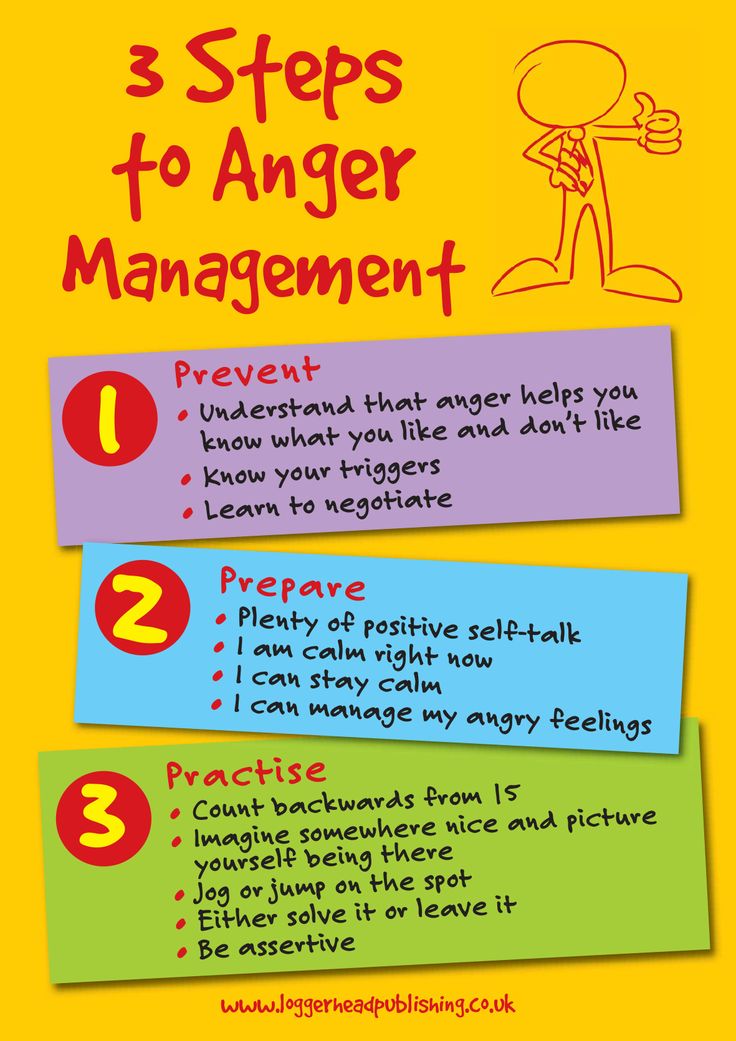 This is especially likely if you grew up in a family where expressing feelings was strongly discouraged. As an adult, you may have a hard time acknowledging feelings other than anger.
This is especially likely if you grew up in a family where expressing feelings was strongly discouraged. As an adult, you may have a hard time acknowledging feelings other than anger.
Anger can also mask anxiety. When you perceive a threat, either real or imagined, your body activates the “fight or flight” response. In the case of the “fight” response, it can often manifest itself as anger or aggression. To change your response, you need to find out what’s causing you to feel anxious or scared.
Anger problems can stem from what you learned as a child. If you watched others in your family scream, hit each other, or throw things, you might think this is how anger is supposed to be expressed.
Anger can be a symptom of another underlying health problem, such as depression (especially in men), trauma, or chronic stress.
Clues that there's more to your anger than meets the eye
You have a hard time compromising. Is it hard for you to understand other people’s points of view, and even harder to concede a point? If you grew up in a family where anger was out of control, you may remember how the angry person got their way by being the loudest and most demanding. Compromising might bring up scary feelings of failure and vulnerability.
Is it hard for you to understand other people’s points of view, and even harder to concede a point? If you grew up in a family where anger was out of control, you may remember how the angry person got their way by being the loudest and most demanding. Compromising might bring up scary feelings of failure and vulnerability.
You view different opinions as a personal challenge. Do you believe that your way is always right and get angry when others disagree? If you have a strong need to be in control or a fragile ego, you may interpret other perspectives as a challenge to your authority, rather than simply a different way of looking at things.
You have trouble expressing emotions other than anger. Do you pride yourself on being tough and in control? Do you feel that emotions like fear, guilt, or shame don’t apply to you? Everyone has those emotions so you may be using anger as a cover for them. If you are uncomfortable with different emotions, disconnected, or stuck on an angry one-note response to situations, it’s important to get back in touch with your feelings. HelpGuide’s free Emotional Intelligence Toolkit can help.
HelpGuide’s free Emotional Intelligence Toolkit can help.
While you might feel that you just explode into anger without warning, there are in fact physical warning signs in your body. Becoming aware of your own personal signs that your temper is starting to boil allows you to take steps to manage your anger before it gets out of control.
Pay attention to the way anger feels in your body
- Knots in your stomach
- Clenching your hands or jaw
- Feeling clammy or flushed
- Breathing faster
- Headaches
- Pacing or needing to walk around
- “Seeing red”
- Having trouble concentrating
- Pounding heart
- Tensing your shoulders
Tip 3: Identify your triggers
Stressful events don’t excuse anger, but understanding how these events affect you can help you take control of your environment and avoid unnecessary aggravation. Look at your regular routine and try to identify activities, times of day, people, places, or situations that trigger irritable or angry feelings.
Maybe you get into a fight every time you go out for drinks with a certain group of friends. Or maybe the traffic on your daily commute drives you crazy. When you identify your triggers, think about ways to either avoid them or view the situations differently so they don’t make your blood boil.
Negative thought patterns that can trigger anger
You may think that external factors—the insensitive actions of other people, for example, or frustrating situations—are causing your anger. But anger problems have less to do with what happens to you than how you interpret and think about what happened.
Common negative thinking patterns that trigger and fuel anger include:
- Overgeneralizing. For example, “You ALWAYS interrupt me. You NEVER consider my needs. EVERYONE disrespects me. I NEVER get the credit I deserve.”
- Obsessing over “shoulds” and “musts.” Having a rigid view of the way a situation should or must go and getting angry when reality doesn’t line up with this vision.
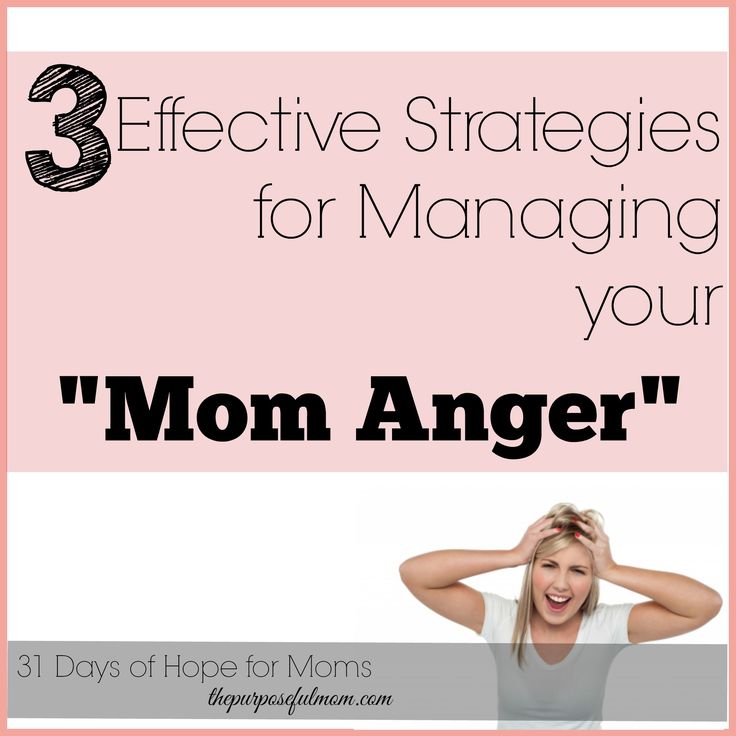
- Mind reading and jumping to conclusions. Assuming you “know” what someone else is thinking or feeling—that they intentionally upset you, ignored your wishes, or disrespected you.
- Collecting straws. Looking for things to get upset about, usually while overlooking or blowing past anything positive. Letting these small irritations build and build until you reach the “final straw” and explode, often over something relatively minor.
- Blaming. When anything bad happens or something goes wrong, it’s always someone else’s fault. You tell yourself, “life’s not fair,” or blame others for your problems rather than taking responsibility for your own life.
When you identify the thought patterns that fuel your anger, you can learn to reframe how you think about things. Ask yourself: What’s the evidence that the thought is true? That it’s not true? Is there a more positive, realistic way of looking at a situation? What would I say to a friend who was thinking these things?
ADVERTISEMENT
Tip 4: Learn ways to cool down quickly
Once you know how to recognize the warning signs that your temper is rising and anticipate your triggers, you can act quickly to deal with your anger before it spins out of control. There are many techniques that can help you cool down and keep your anger in check.
There are many techniques that can help you cool down and keep your anger in check.
Focus on the physical sensations of anger. While it may seem counterintuitive, tuning into the way your body feels when you’re angry often lessens the emotional intensity of your anger.
Take some deep breaths. Deep, slow breathing helps counteract rising tension. The key is to breathe deeply from the abdomen, getting as much fresh air as possible into your lungs.
Get moving. A brisk walk around the block is a great idea. Physical activity releases pent-up energy so you can approach the situation with a cooler head.
Use your senses. You can use sight, smell, hearing, touch, and taste to quickly relieve stress and cool down. You might try listening to a favorite piece of music, looking at a treasured photo, savoring a cup of tea, or stroking a pet.
Stretch or massage areas of tension. Roll your shoulders if you are tensing them, for example, or gently massage your neck and scalp.
Slowly count to ten. Focus on the counting to let your rational mind catch up with your feelings. If you still feel out of control by the time you reach ten, start counting again.
Give yourself a reality check
When you start getting upset about something, take a moment to think about the situation. Ask yourself:
- How important is it in the grand scheme of things?
- Is it really worth getting angry about it?
- Is it worth ruining the rest of my day?
- Is my response appropriate to the situation?
- Is there anything I can do about it?
- Is taking action worth my time?
Tip 5: Find healthier ways to express your anger
If you’ve decided that the situation is worth getting angry about and there’s something you can do to make it better, the key is to express your feelings in a healthy way. Learning how to resolve conflict in a positive way will help you strengthen your relationships rather than damaging them.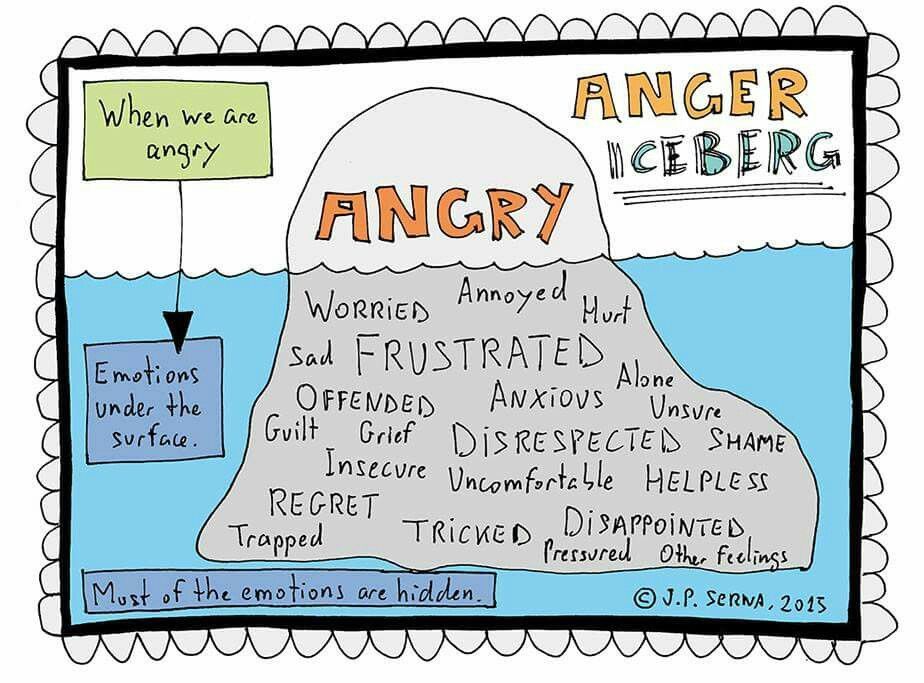
Always fight fair. It’s okay to be upset at someone, but if you don’t fight fair, the relationship will quickly break down. Fighting fair allows you to express your own needs while still respecting others.
Make the relationship your priority. Maintaining and strengthening the relationship, rather than “winning” the argument, should always be your first priority. Respect the other person and their viewpoint.
Focus on the present. Once you are in the heat of arguing, it’s easy to start throwing past grievances into the mix. Rather than looking to the past and assigning blame, focus on what you can do in the present to solve the problem.
Be willing to forgive. Resolving conflict is impossible if you’re unwilling or unable to forgive. Resolution lies in releasing the urge to punish, which can never compensate for our losses and only adds to our injury by further depleting and draining our lives.
Take five if things get too heated.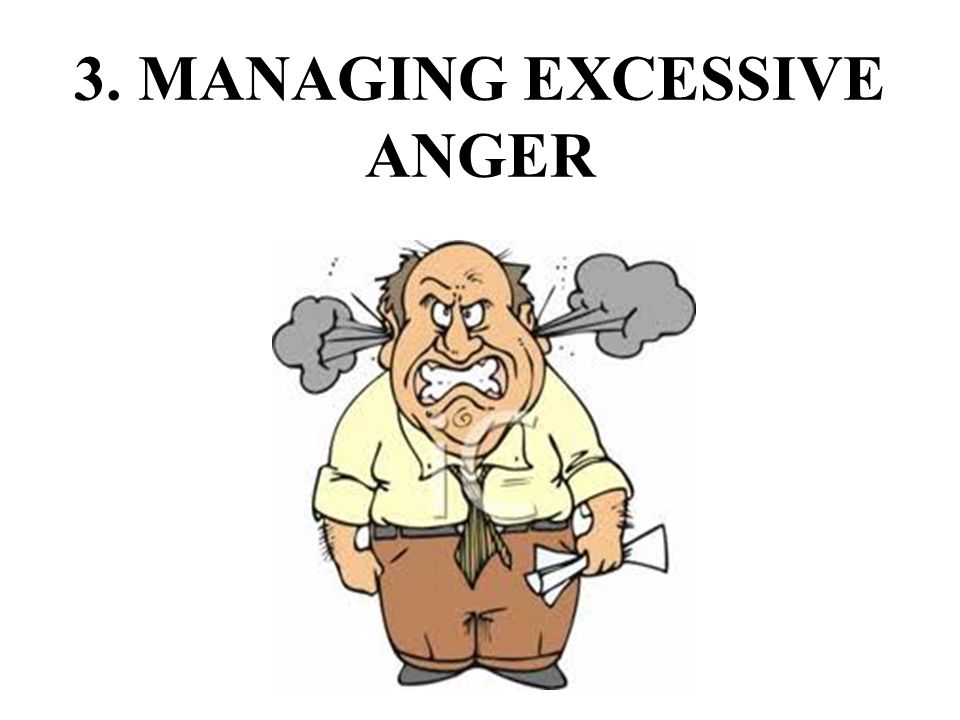 If your anger starts to spiral out of control, remove yourself from the situation for a few minutes or for as long as it takes you to cool down.
If your anger starts to spiral out of control, remove yourself from the situation for a few minutes or for as long as it takes you to cool down.
Know when to let something go. If you can’t come to an agreement, agree to disagree. It takes two people to keep an argument going. If a conflict is going nowhere, you can choose to disengage and move on.
Tip 6: Stay calm by taking care of yourself
Taking care of your overall mental and physical well-being can help ease tension and diffuse anger problems.
Manage stress. If your stress levels are through the roof, you’re more likely to struggle controlling your temper. Try practicing relaxation techniques such as mindfulness meditation, progressive muscle relaxation, or deep breathing. You’ll feel calmer and more in control of your emotions.
Talk to someone you trust. Nothing eases stress more effectively than chatting face-to-face with a friend or loved one. The person doesn’t have to provide answers, they just need to be a good listener. But talking about your feelings and seeking a different perspective on a situation is not the same as venting. Simply venting your anger at someone will only fuel your temper and reinforce your anger problem.
But talking about your feelings and seeking a different perspective on a situation is not the same as venting. Simply venting your anger at someone will only fuel your temper and reinforce your anger problem.
Get enough sleep. A lack of sleep can exacerbate negative thoughts and leave you feeling agitated and short-tempered. Try to get seven to nine hours of good quality sleep.
Exercise regularly. It’s an effective way to burn-off tension and ease stress, and it can leave you feeling more relaxed and positive throughout the day. Aim for at least 30 minutes on most days, broken up into shorter periods if that’s easier.
Be smart about alcohol and drugs. They lower your inhibitions and can make it even harder to control your anger. Even consuming too much caffeine can make you more irritable and prone to anger.
Tip 7: Use humor to relieve tension
When things get tense, humor and playfulness can help you lighten the mood, smooth over differences, reframe problems, and keep things in perspective.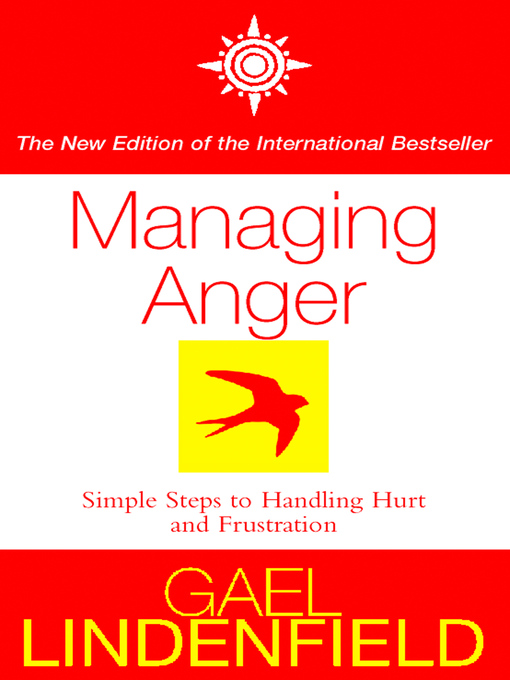 When you feel yourself getting angry in a situation, try using a little lighthearted humor. It can allow you to get your point across without getting the other person’s defenses up or hurting their feelings.
When you feel yourself getting angry in a situation, try using a little lighthearted humor. It can allow you to get your point across without getting the other person’s defenses up or hurting their feelings.
However, it’s important that you laugh with the other person, not at them. Avoid sarcasm, mean-spirited humor. If in doubt, start by using self-deprecating humor. We all love people who are able to gently poke fun at their own failings. After all, we’re all flawed and we all make mistakes.
So, if you’ve made a mistake at work or you’ve just spilled coffee over yourself, instead of getting angry or picking a fight, try making a joke about it. Even if the joke falls flat or comes out wrong, the only person you risk offending is yourself.
When humor and play are used to reduce tension and anger, a potential conflict can even become an opportunity for greater connection and intimacy.
Tip 8: Recognize if you need professional help
If, despite putting these previous anger management techniques into practice, your anger is still spiraling out of control, or if you’re getting into trouble with the law or hurting others, you need more help.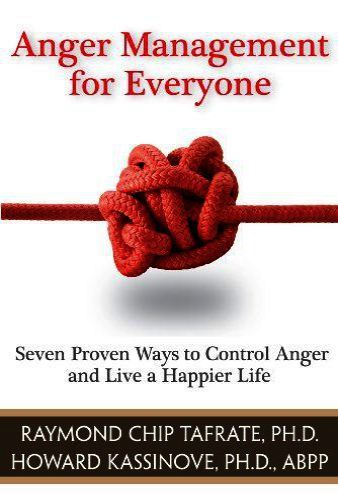
Anger management classes allow you to meet others coping with the same struggles and learn tips and techniques for managing your anger.
Therapy, either group or individual, can be a great way to explore the reasons behind your anger and identify triggers. Therapy can also provide a safe place to practice new skills for expressing anger.
Anger isn’t the real problem in an abusive relationship
Despite what many believe, domestic violence and abuse does not happen due to the abuser’s loss of control over their temper. Rather, it’s a deliberate choice to control another person. If you are abusive towards your spouse or partner, know that you need specialized treatment, not regular anger management classes.
Advertisement
Do you struggle to clearly express how you're feeling inside?
Differences arise in any relationship, whether at home or at work. But there is a way out of seemingly unresolvable conflicts where everyone leaves with a sense of fulfillment and with their self-respect intact. This is the path of Nonviolent Communication from Sounds True.
This is the path of Nonviolent Communication from Sounds True.
GET ACCESS TO THIS FREE TRAINING NOW
Authors: Melinda Smith, M.A. and Jeanne Segal, Ph.D.
- References
Trauma- and Stressor-Related Disorders. (2013). In Diagnostic and Statistical Manual of Mental Disorders. American Psychiatric Association. https://doi.org/10.1176/appi.books.9780890425787.x07_Trauma_and_Stressor_Related_Disorders
Williams, Riccardo. “Anger as a Basic Emotion and Its Role in Personality Building and Pathological Growth: The Neuroscientific, Developmental and Clinical Perspectives.” Frontiers in Psychology 8 (November 7, 2017): 1950. https://doi.
 org/10.3389/fpsyg.2017.01950
org/10.3389/fpsyg.2017.01950Staicu, ML, and M Cuţov. “Anger and Health Risk Behaviors.” Journal of Medicine and Life 3, no. 4 (November 15, 2010): 372–75. https://www.ncbi.nlm.nih.gov/pmc/articles/PMC3019061/
Ba, Al Ubaidi, and Al Ubaidi Ba. “Control Excessive Anger before It Controls Your Life.” Accessed November 17, 2021. https://doi.org/10.23937/2469-5793/1510088
Zarshenas, Ladan, Mehdi Baneshi, Farkhondeh Sharif, and Ebrahim Moghimi Sarani. “Anger Management in Substance Abuse Based on Cognitive Behavioral Therapy: An Interventional Study.” BMC Psychiatry 17, no. 1 (November 23, 2017): 375. https://doi.org/10.1186/s12888-017-1511-z
Nasir, Rohany, and Norisham Abd Ghani. “Behavioral and Emotional Effects of Anger Expression and Anger Management among Adolescents.” Procedia – Social and Behavioral Sciences, 2nd World Conference on Psychology and Sociology, PSYSOC 2013, 27-29 November 2013, Brussels, Belgium, 140 (August 22, 2014): 565–69.
 https://doi.org/10.1016/j.sbspro.2014.04.471
https://doi.org/10.1016/j.sbspro.2014.04.471Bodenmann, Guy, Nathalie Meuwly, Thomas N. Bradbury, Simone Gmelch, and Thomas Ledermann. “Stress, Anger, and Verbal Aggression in Intimate Relationships: Moderating Effects of Individual and Dyadic Coping.” Journal of Social and Personal Relationships 27, no. 3 (May 1, 2010): 408–24. https://doi.org/10.1177/0265407510361616
Fehr, Beverley, Mark Baldwin, Lois Collins, Suzanne Patterson, and Riva Benditt. “Anger in Close Relationships: An Interpersonal Script Analysis.” 25, no. 3 (March 1, 1999): 299–312. https://doi.org/10.1177/0146167299025003003
Candelaria, Ashley M., Alicia L. Fedewa, and Soyeon Ahn. “The Effects of Anger Management on Children’s Social and Emotional Outcomes: A Meta-Analysis.” School Psychology International 33, no. 6 (December 1, 2012): 596–614. https://doi.org/10.1177/0143034312454360
Okuda, Mayumi, Julia Picazo, Mark Olfson, Deborah S. Hasin, Shang-Min Liu, Silvia Bernardi, and Carlos Blanco.
 “Prevalence and Correlates of Anger in the Community: Results from a National Survey.” CNS Spectrums 20, no. 2 (April 2015): 130–39. https://doi.org/10.1017/S1092852914000182
“Prevalence and Correlates of Anger in the Community: Results from a National Survey.” CNS Spectrums 20, no. 2 (April 2015): 130–39. https://doi.org/10.1017/S1092852914000182Saghir, Zahid, Javeria N. Syeda, Adnan S. Muhammad, and Tareg H. Balla Abdalla. “The Amygdala, Sleep Debt, Sleep Deprivation, and the Emotion of Anger: A Possible Connection?” Cureus 10, no. 7 (July 2, 2018): e2912. https://doi.org/10.7759/cureus.2912
Controlling Anger Before it Controls You – Origins of excessive anger, tips on coping, and when to seek more help. (American Psychological Association)
What Your Anger May Be Hiding – Reasons behind excessive anger. (Psychology Today)
Anger and Trauma – How anger should be treated when it's a symptom of PTSD. (National Center for PTSD)
When You Love an Angry Person – Tips on fighting fair, ways to approach a loved one, and when to seek more help. (Get Your Angries Out)
Last updated: November 18, 2022
5 techniques for managing anger
There are no good or bad emotions and feelings, have you ever thought about it? As soon as we stop dividing everything into “good-bad, remove-leave”, it will become easier for us to manage our states.
In the management of emotions, one can be guided by the “principle of consequences”. Think about what actions follow emotions? How do your emotional outbursts end? What do you and the people around you gain from the manifestation of emotions, and what do you lose?
Are you satisfied with the consequences of emotions and feelings that are vividly manifested at important moments in your life? Do I need to change something in their manifestation in order to get different, more environmentally friendly results?
Any of our emotions can have both positive and negative results. So joy can be too big and devastating to make important decisions. And sadness is “bright”, motivating us, for example, to take timely actions.
Anger is most often destructive, because we do not know how to control its energy and use it for good. Such a blessing can be obtaining the results we need.
Remember what kind of power turns on inside when we experience anger? Just a wave that almost instantly pours out on those around you, who may not have anything to do with your emotions. We can do things that we will later regret for a long time.
We can do things that we will later regret for a long time.
What if we notice and realize in time that we are starting to get angry? And to direct the energy that appears to useful actions, you can get positive consequences from your anger. So, five ideas and techniques for managing anger.
1. Asking questions to become aware
In the moment of an outburst of anger, it is important to be aware of what exactly is happening to you. To do this, learn to ask yourself questions, to conduct a kind of internal dialogue.
- Ask yourself what information does this emotion convey?
- What does your anger say?
- What actually happens in this situation?
- What exactly "turns you on" in another person's behavior?
Yes, it's not easy, when you get into an emotional wave, slow down and remember the questions. The method that we are taught from childhood - "count to 10" can help here. As soon as you start to emotionally turn on, count, and then ask yourself a question.
2. Understand to control
Examine your anger, and it is best when you are not feeling it. This will help you understand that there is a reason for everything and that almost everything can be changed.
- Think about what provokes your anger. What factors trigger anger most often?
- What needs are not met and you get emotionally turned on?
- What fears are behind your anger? Are they real? If yes, how to deal with them?
3. Reduce the emotional degree
Imagine a scale on which our emotional states are located. Anger is its extreme manifestation, and what stands before it? Irritation, indignation, annoyance, anger?
Learn to notice your emotional temperature when it has not yet jumped to the "anger" mark. Feel annoyance - do not suppress, but show it. Outraged - say so! Someone's actions cause annoyance - react.
It is very correct to verbalize your state, then your interlocutor will be aware of what is happening:
- “I am starting to get annoyed, therefore…”
- "Such words revolt me, come on.
 .."
.."
Most likely, the conflict will be avoided, as well as your outburst of anger.
4. Give vent to anger without suppressing it
Express your emotions in a safe way.
- Speak up. Retreat and tell yourself everything you think about the situation or the people who caused the anger. Record your words on the recorder, when you listen to the recording in a calm state, you will find a lot of useful things.
- Run, dance or jump. Release energy through the body - this is one of the best ways to release anger.
- Beat a pillow, or better a punching bag. The accumulated blows have not interfered with anyone in life.
5. Exercise resilience
Anger can be habituated, reacted to or dealt with. And if you reduce your sensitivity to them? What can help with this?
- Diary of emotions. Constantly keep a record of what makes you angry (anger, annoyance). Knowing the main triggers and pain points makes it easier to work with your reactions.

- Rest and mode of life. A burnt out and exhausted person "turns on" to any little thing. Learn to relax, put things in order in your life with the help of planning. And you will become more resistant to the stresses that accompany us all.
- Work with the body. For emotional and psychological stability, it is necessary to have energy reserves. Nutrition, physical activity, breathing exercises, massage - all this will help to accumulate and properly spend energy.
Managing your anger, like any other emotion, is difficult. But if you want and make an effort, anything is possible! How to learn to manage anger | PSYCHOLOGIES
12012
Know thyself
Not everyone is able to cope with this reaction to external stimuli: we have not been taught this. Remember: when you were angry at something as a child, your parents sent you to your room to "recover yourself." Bottom line: many do not even know how to recognize this emotion and understand the scale of the disaster only when the situation gets out of control.
“We get angry when someone or something goes against our values, beliefs, and attitudes,” explains psychologist Mark Pistorio, author of The Wisdom of Our Anger. Anger is a weapon that helps both defend and attack. The reaction starts in the body: the cheeks turn red, the blood pressure rises, the heart beats faster, the muscles tense up. You need to be more attentive to these signals and, when they appear, try to calm down, not to speak or do anything. Amid anger, our higher intellectual functions "fall asleep" - we momentarily lose access to our mind and logic.
Double-edged emotion
Sometimes anger is perceived positively and even encouraged. “This happens when it helps to stand up to injustice, rally against a common enemy, or defend certain values,” says sociologist Eric Gagnon, author of Outbursts: Images of Anger, in which he explores attitudes towards this emotion in Western culture.
But in addition to admiration, anger can cause fear, frustration, frustration, and an even stronger response. How others perceive an outburst of rage depends on many factors, including your personality.
How others perceive an outburst of rage depends on many factors, including your personality.
Amid anger our higher intellectual functions go to sleep - we momentarily lose access to our mind and logic
be able to control your emotions; otherwise it would be impossible to live in society.
“When an emotional outburst is inappropriate (even if it is fair and logical), it is perceived negatively,” says Mark Pistorio.
For psychologists, anger is an alarm signal, an overreaction to a certain situation. Sometimes such an outbreak is better than an unresolved conflict that will smolder for a long time. However, if such “fires” flare up too often, action must be taken.
Two genders, two angers
“Men and women perceive and experience anger differently,” says psychologist Ann Campbell. - Women associate it with a loss of self-control and very often feel guilty if they broke down on their children, spouse or colleagues.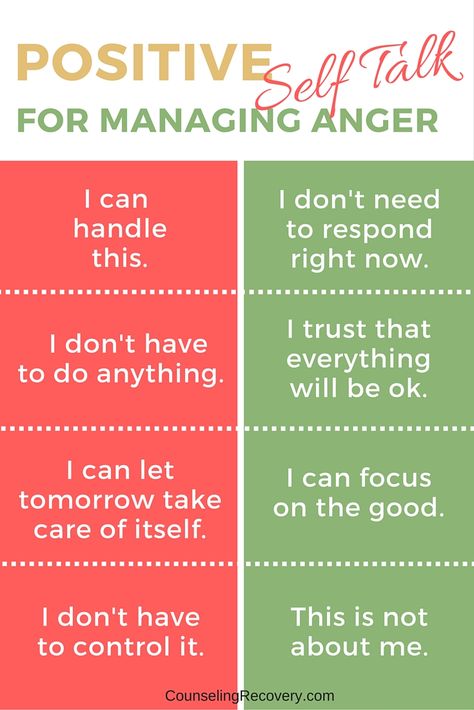 Men, on the other hand, perceive anger as a way to defend their case and prove superiority.
Men, on the other hand, perceive anger as a way to defend their case and prove superiority.
Scientists have found that men quickly move from words to deeds, that is, to physical aggression. Women often just scream and cry. “Although some perceive tears as a means of manipulation, this reaction helps to quickly relieve the tension caused by anger,” the psychologist explains.
Men perceive anger as a way to defend their innocence and prove superiority
Why is women's anger perceived differently than men's? For a long time, ladies in the family and society were prescribed to be submissive, well-mannered, affable and silent. Only a few dared to express their opinion openly. The display of emotions by a woman in public goes against this vestige.
Women who allow themselves emotional outbursts at work lose points in the eyes of colleagues. They are called unbalanced, hysterical, etc. For example, in 2006, the chairman of the US Republican National Committee said on one of the television programs that Hillary Clinton was "too emotional to become president.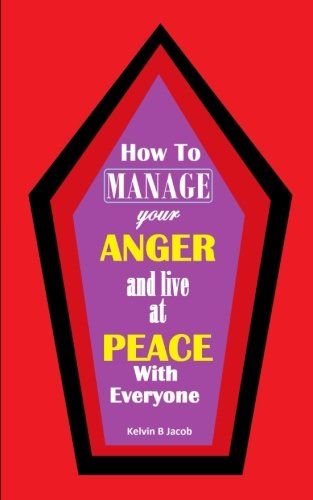 "
"
While the behavior of a man in similar situations, on the contrary, is interpreted positively. According to a University of Arizona study published in 2015, an angry woman is taken less seriously than a man. After all, it is believed that the representatives of the fair half are naturally more emotionally unstable, which means they can "get upset because of any nonsense."
Mark Pistorio believes that this perception will change: “Anger that hurts is always bad. It doesn't matter who the source is - a man or a woman.
In the name of love
A bad peace is better than a good quarrel. This folk wisdom is not always true, especially when it comes to relationships between a man and a woman. Unspoken grievances and mutual dissatisfaction lead to the fact that people move away from each other. Suppressed anger causes stress.
The more we delve into our feelings, talking to ourselves, the more our resentment grows.As a result, we are more inflamed
No need to close yourself in a room alone and sob into the pillow, overworking yourself even more. But do not rush at each other with accusations on the first occasion. Take a break, think about the situation and talk about your emotions to your partner.
“You don't have to keep everything to yourself. This is especially true for women, says Ann Campbell. - After all, the more we delve into our feelings, talking to ourselves, the more our resentment grows. As a result, instead of extinguishing the outbreak, we become more inflamed.”
The art of getting angry
Fortunately, you can learn to control your emotions. And if you find it difficult to control your anger or find the right words, don't panic: the more you practice, the better you will get.
“First, learn to pause to calm down,” advises Mark Pistorio. - Then try to calmly formulate what annoys you, worries or does not suit you. We also need to consider factors that make us more emotional and irritable: stress, fatigue, anxiety. ”
”
Because of them, we take it out on the children who always disobey us, or on the driver who blocked the exit from the yard. Consider if they are the real cause of your condition. And will you be better off if you lash out at them?
Anger becomes a problem if it:
- is inadequate to the situation;
- outbreaks are too frequent and affect quality of life;
- caused by something that happened a long time ago;
- results in physical abuse, harm to health or property, yours or others;
- damages work;
- destroys relationships with loved ones;
- makes you feel weak and sick.
In all these cases, it is imperative to discuss the problem with a specialist.
Text: Nina Nabokova Photo source: Getty Images
New on the site
Hatspeech, hate speech and verbal aggression: how hatred manifests itself in speech
“I'm terribly afraid of my husband's betrayal. The fact is that before the wedding, he gave reasons for jealousy.
 And you can communicate your feelings without being verbally or physically abusive. Even if someone is pushing your buttons, you always have a choice about how to respond.
And you can communicate your feelings without being verbally or physically abusive. Even if someone is pushing your buttons, you always have a choice about how to respond.